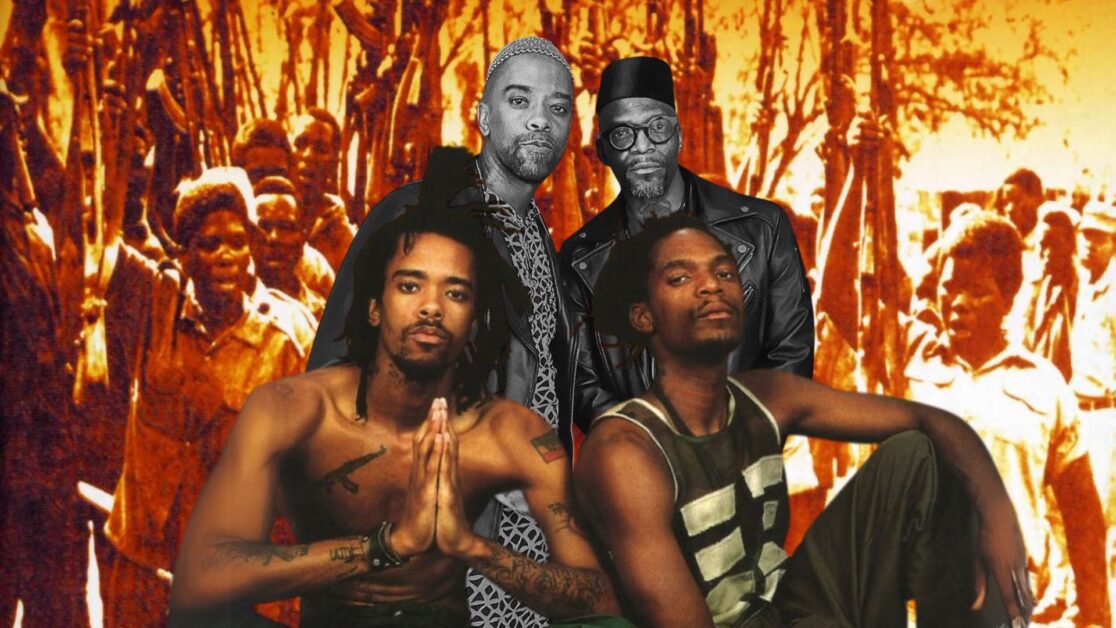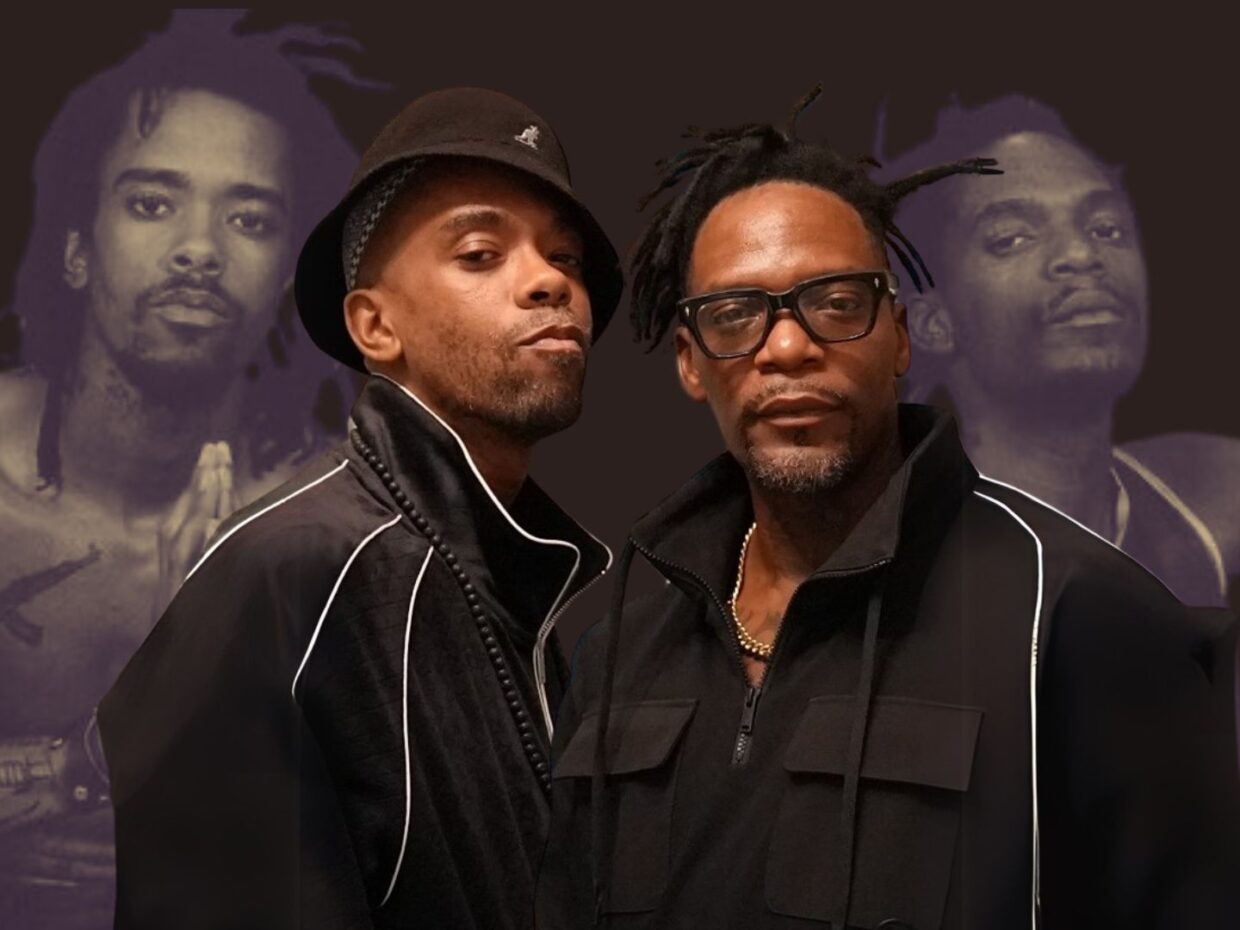The always revolutionary dead prez isn’t holding back. The legends keep it 100, whether discussing Barack Obama’s legacy, their one-time shocking collaboration with Jay-Z or their experience with Kanye West. AllHipHop‘s Chuck Jigsaw Creekmur talks to dead prez members M-1 and Stic.man partially to celebrate the 25th anniversary of their groundbreaking album Let’s Get Free and secondly to explore their impact.
These are deep dives into dead prez’s revolutionary creative process, their plight with Loud Records and even their interesting views on gangs, also known as street tribes. They honor the powerful influence Public Enemy Mobb Deep, The Black Panther Party, Curtis Mayfield and others. The duo also candidly addresses their rough-n-tumble experiences with the music industry, leaving space for new creative ventures.
With a new book and fresh music on deck, the dpz continue their mission of liberation and empowerment through movement and organization. Real Hip-Hop remains revolutionary. Below is a highly redacted version of an hour-long video conversation between Jigsaw, M-1 and Stic.
AllHipHop: It’s been a minute, but we’re finally talking to the revolutionary duo dead prez—M-1 and Stic.Man—to celebrate 25 years of their groundbreaking album Let’s Get Free. What’s good, fellas?
M-1: Salute, blessed to be here, man.
AllHipHop: Let’s Get Free is 25 years old. Can you reflect on the urgency and mindset during its creation?
Stic: Man, when we created Let’s Get Free, we didn’t even know if we’d get another chance. We were facing homelessness, uncertainty, and the industry pressures. It was do-or-die. We went kamikaze, said what needed to be said. The album is like our “table of contents,” covering police brutality, wellness, sexuality, and mental liberation.
M-1: Exactly. Brooklyn was our battleground. We were revolutionary-minded, feeling the looming presence of white power structures that still dominate today. It was about fearless truth-telling.
AllHipHop: You famously collaborated with Prodigy on “Be Healthy.” What was your relationship like?
M-1: Prodigy was deeply introspective and revolutionary-minded behind closed doors. He didn’t care about industry expectations. We respected him greatly as an intellectual, as someone well-read, pushing boundaries in his own lane.
Stic: Mobb Deep was a huge inspiration, from their beats to their gritty storytelling. They showed us how to keep it street and sophisticated simultaneously.
READ ALSO: In BK, dead prez Celebrates 25th Anniversary Of Their Revolutionary Debut “Let’s Get Free”
AllHipHop: Kanye West produced a remix for “Hip-Hop,” which surprised many. How did that happen?
M-1: Kanye used to hang around our sessions—he was influenced by our message and even our fashion sense! He produced the “Still Bigger Than Hip Hop” remix, which happened organically as our song gained momentum on MTV and BET.
AllHipHop: Did you clash with Loud Records artistically?
Stic: Steve Rifkind believed in us but there was friction, of course. Labels want comfortable artists, and we wanted ownership—masters, publishing—things that matter.
AllHipHop: The phrase “Revolutionary but Gangster” paired with red, black, and green bandanas was provocative. Why choose such controversial symbolism?
M-1: We spoke the language of street tribes to connect with warriors, aiming to unify gangs against a common oppressive system. It was symbolic of our revolutionary approach—organizing through street culture.
Stic: Exactly. Gang culture is everywhere—police, politicians, corporations—all are gangs. We used our art to show unity and strength. We need to bang for real issues: health, community control, and liberation.
AllHipHop: During Obama’s presidency, did you feel differently about America’s potential for change?

M-1: No, Obama was charismatic, intelligent, but he embodied neo-colonialism. He expanded U.S. military presence in Africa significantly. It’s not about color, it’s about power dynamics.
Stic: Obama had charisma, but policy-wise, nothing fundamentally changed. His symbolic value was high, but real systemic change didn’t follow. The system remains intact.
AllHipHop: What’s your take on today’s Hip-Hop landscape?
Stic: It’s become monotonous and artificial. Authentic messages are rare, which makes revolutionary music more necessary than ever. Today’s artists should seize this open lane and deliver meaningful messages.
M-1: Hip-Hop now reflects broader cultural issues—capitalist exploitation and devaluation of art. There’s a void for artists genuinely committed to cultural integrity.
AllHipHop: What’s next for dead prez?
M-1: We have a new book dropping soon, “Music Message Movement: dead prez’s Liner Notes For Liberation,” covering insights from our journey, including working with Jay-Z.
Stic: New music is definitely coming. We’re here to keep drawing that line in the sand, pushing for health, wellness, and community empowerment. Revolution doesn’t retire, it evolves.
AllHipHop: Your legacy is undeniable. Any final message?
Stic: Consistency is key. Impact is the point. We stay grateful, grounded, and committed to the struggle. Revolutionary love always.
M-1: Much love to AllHipHop for keeping it real. We’ll keep the conversation going as long as we’re breathing.
